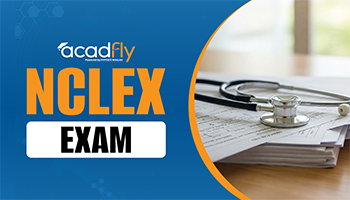

The Occupational English Test (OET) plays a critical role for healthcare professionals seeking to work in English-speaking countries. It assesses English proficiency in a healthcare context, which is essential for effective communication with patients, medical staff, and documentation. This comprehensive guide will provide an in-depth understanding of how OET scores are calculated, their meaning, and detailed steps on how to interpret them effectively.
What Are OET Scores?
OET scores represent your proficiency in using English within a healthcare setting. The test evaluates four core skills:
Listening: Your ability to understand spoken English in healthcare scenarios.
Reading: Your skill in comprehending written texts relevant to healthcare.
Writing: Your capability to produce clear and accurate written communication in healthcare contexts.
Speaking: Your effectiveness in engaging in verbal interactions in a healthcare environment.
Each section is scored independently, and these scores are then combined to give an overall assessment of your English proficiency.
OET Score Calculation: How It Works
1. Listening
The Listening section involves listening to recorded conversations and completing tasks based on the content. Your responses are evaluated on accuracy, comprehension, and the ability to follow complex instructions. Each correct answer contributes to your overall score.
2. Reading
In the Reading section, you’ll tackle various healthcare-related texts and answer questions that test your ability to locate information, understand meaning, and interpret details. Scores are awarded based on how well you comprehend and analyze the given texts.
3. Writing
The Writing section requires you to complete tasks like writing a letter or a report. Your written work is assessed on clarity, coherence, relevance, and accuracy. High scores reflect your ability to communicate effectively and appropriately in writing.
4. Speaking
The Speaking section involves role-play scenarios where you interact with an interlocutor. Your performance is judged based on fluency, pronunciation, and your ability to convey information effectively. Scores reflect your practical communication skills in a healthcare setting.
OET Scores Meaning: What Do They Indicate?
OET scores are categorized from A to E, with each grade representing a different level of proficiency:
-
Grade A: Represents a high level of proficiency. You can handle complex communication tasks with ease and demonstrate an excellent command of English in healthcare settings.
-
Grade B: Indicates a good level of proficiency. You can communicate effectively in most situations but might have minor areas that need improvement.
-
Grade C: Reflects a moderate level of proficiency. You can manage routine communication but might struggle with more complex or nuanced situations.
-
Grade D: Represents a basic level of proficiency. You may face significant challenges in communication within healthcare contexts.
-
Grade E: Indicates a limited level of proficiency. You are likely to encounter considerable difficulties in using English effectively in professional settings.
Understanding OET Scores: A Detailed Interpretation
1. Overall Score Interpretation
Your overall OET score provides a comprehensive view of your English proficiency across all four skills. Higher scores suggest that you are well-prepared for the language demands of healthcare professions, while lower scores indicate specific areas where improvement is needed.
2. Skill-Specific Scores
Listening: High scores indicate your ability to understand and interpret spoken English in healthcare contexts, such as patient consultations or medical discussions.
Reading: Strong performance here shows that you can effectively comprehend and analyze healthcare-related texts, which is crucial for understanding medical literature and documentation.
Writing: High writing scores reflect your capability to produce clear, accurate, and appropriate written communication, an essential skill for effective documentation and patient correspondence.
Speaking: Good speaking scores demonstrate your ability to engage in effective verbal communication with patients and colleagues, which is vital for successful interactions in a healthcare environment.
How to Read OET Scores: A Step-by-Step Guide
1. Review Each Section’s Score
Begin by examining your scores for each of the four sections. This will help you identify your strengths and areas needing improvement. For example, if you scored highly in Listening but lower in Writing, focus on enhancing your writing skills.
2. Compare with Benchmarks
Different regulatory bodies and employers have specific score requirements. Compare your scores with these benchmarks to determine if you meet the language proficiency levels needed for your desired role or registration.
3. Analyze Feedback
If available, review any feedback provided with your scores. Feedback can offer valuable insights into specific areas where you need improvement, helping you target your preparation more effectively.
4. Plan for Improvement
Based on your scores and any feedback, create a targeted study plan. Focus on areas where you scored lower and use practice materials and resources to address these weaknesses. Consider enrolling in preparation courses or seeking guidance from a tutor for personalized support.
5. Monitor Progress
Regularly track your progress as you work on improving your skills. Use practice tests to gauge your development and adjust your study plan as needed to ensure continuous improvement.
OET Scores Explained: Key Takeaways
OET scores provide an assessment of your English proficiency within a healthcare context.
Scores are reported on a scale from A to E, with A being the highest grade.
Understanding your scores involves analyzing performance in each section and comparing it with specific benchmarks.
Use your score report to identify strengths and weaknesses and develop a plan for improvement.
Additional Tips for OET Preparation
1. Practice Regularly
Consistent practice is crucial for improving your OET scores. Utilize practice tests, study materials, and online resources to familiarize yourself with the test format and types of questions.
2. Seek Professional Guidance
Consider enrolling in OET preparation courses or seeking guidance from a tutor. Professional guidance can provide personalized feedback, targeted strategies, and support to help you improve your performance.
3. Use Authentic Materials
Practice with authentic healthcare-related materials to better simulate the test environment. This can help you become more comfortable with the types of content and scenarios you’ll encounter on the test.
4. Engage in Active Learning
Active learning techniques, such as role-playing healthcare scenarios or participating in discussion groups, can enhance your practical communication skills and boost your confidence.
5. Stay Motivated
Maintain motivation throughout your preparation by setting achievable goals and tracking your progress. Celebrate small victories and stay focused on your overall objective to succeed in the OET.
Frequently Asked Questions
1. What is the passing score for the OET?
2. How are OET scores used by employers?
3. Can I retake the OET if I’m not satisfied with my scores?
4. How long are OET scores valid?
5. How can I improve my OET scores?









